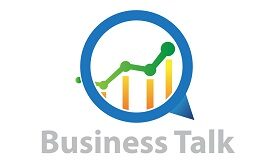Businesses are constantly seeking ways to boost productivity and profitability, making QuickBooks time management and SaaS tool integration a necessity. For QuickBooks users, the new array of SaaS applications, such as Controlio: Simplified SaaS Time Tracking, completely restructures time management by providing remarkable features, effortless integration, and advanced functionality. QuickBooks users, in particular, benefit the most from this enhanced customization. In what follows, we describe the most notable SaaS applications that enhance the efficiency of QuickBooks to evaluate their consequential impact on overall business performance.
Unlocking New Possibilities for QuickBooks Users: The SaaS Approach
Payment processing, expense tracking, and payroll management are QuickBooks’ fundamental features, rendering it an indisputable validator for small and medium-sized businesses. The bulk of accounting tasks are performed automatically with a few clicks. However, some users face the drawback of the built-in time tracking feature requiring manual input of significant value. QuickBooks supports project billing, but users need to ensure allocated time corresponds with payables during the invoicing period. Failure to capture working hours optimally correlates with underperforming businesses. The alliance of QuickBooks’ financial capabilities with the time tracking capabilities of SaaS applications, like the Controlio app, bring a balanced equilibrium to the market.
Best SaaS Tools for Managing Time with QuickBooks
Controlio
The Controlio app simplifies time tracking, giving it a competitive edge among QuickBooks users. It tracks job-related website and app usage, providing accurate project progression data for billing purposes. Controlio integrates with QuickBooks, eliminating manual time entry, resulting in less work and fewer errors.
TSheets (now QuickBooks Time) (Comprehensive Time Tracking)
TSheets, now known as QuickBooks Time, is built specifically for the QuickBooks ecosystem. GPS tracking for field employees, shift scheduling, and reporting are available, supporting mobile and hourly employees.
Clockify (Free and Scalable Time Tracking)
Clockify offers free time tracking along with paid premium options for advanced requirements. Its QuickBooks integration allows time entry for invoicing and payroll, making it ideal for freelancers and small teams on a budget.
Harvest (Time Tracking and Invoicing)
Businesses can invoice clients based on tracked hours using Harvest, with its QuickBooks integration syncing time data for accurate reporting. Harvest also enables seamless invoicing, improving the time-tracking workflow, making it great for service-based industries.
ClickUp (Project and Time Management)
The primary features of ClickUp include time tracking and project management, making it an all-in-one platform. Integrated with QuickBooks, businesses can efficiently analyze costs by correlating time spent on activities with project budgets.
TimeCamp (Automated Time Monitoring)
TimeCamp automates time tracking by monitoring app usage and categorizing activities. Its integration with QuickBooks ensures that captured time information is included in invoices and reports, streamlining administrative tasks for agencies and consultancies.
Key Features to Prioritize
When choosing a SaaS tool for time management and integration with QuickBooks, companies should focus on efficiency-enhancing functions. QuickBooks integration must be seamless to allow synchronization of time data with payroll, invoicing, and expense report matrices. Advanced automation for time tracking, such as that provided by the Controlio app, eliminates manual entries by capturing real-time data on app and website usage. Mobile and GPS functionality are critical for field teams, allowing time recording from any location. Detailed reporting and project analytics expose profitability margins and aid in effective resource allocation.
Security cannot be overlooked, as these tools handle sensitive financial and employee information. Ensure they provide encryption, secure APIs, and compliance with standards like GDPR or CCPA. Scalability is crucial to support expanding business functions, and customizable features with simple interfaces guarantee seamless adoption with minimal training.
Benefits for Businesses
Connecting time management SaaS tools with QuickBooks brings transformative advantages. Automated time tracking reduces error rates and saves hours of menial work, enabling teams to focus on critical tasks. Accurate time data improves billing precision, enhancing cash flow and client satisfaction. For instance, the Controlio app enhances accuracy by providing detailed insights into time spent on tasks, allowing businesses to optimize project budgets and staffing. These tools also improve compliance by creating auditable records of hours worked, simplifying adherence to labor regulations.
Employees benefit from hassle-free time logging, making timesheets easier. Mobile accessibility supports flexible work arrangements, while transparent tracking ensures fair compensation, fostering trust. By enhancing workflows, SaaS tools empower employees to focus on high-value tasks, boosting morale and productivity.
Obstacles and Resolutions
SaaS-based time management tools have challenges. Integration issues can arise if tools aren’t fully compatible with QuickBooks, causing problematic data syncs. Businesses must verify integrations before deciding. Subscription costs for premium features can be expensive, though many tools offer free or low-cost tiers for small businesses. Resistance to tracking tools, especially those monitoring app usage, can erode trust if not managed carefully. Sound policies explaining data handling and privacy protocols can resolve these issues.
Well-defined training programs and resource materials ensure teams fully utilize these tools. Comprehensive onboarding and ongoing assistance allow employees to explore features and receive help, maximizing value. Balancing monitoring with autonomy avoids micromanaging, cultivating a culture of trust and accountability.
SaaS-Driven Time Management’s Expected Improvements
As of 2025, SaaS tools are revolutionizing time management to meet the demands of flexible work environments. Artificial intelligence enhances functionalities like automated expense categorization and predictive time allocation, improving accuracy. Emerging technologies, such as blockchain for secure time recording, promise further integration. With hybrid work continuing, tools focus on cross-platform access and localization for globally distributed teams.
Sustainability is a priority, with decentralized computing platforms optimizing energy consumption for green practices. These developments ensure SaaS solutions remain nimble, extensible, and future-ready.
Conclusion
SaaS-based time management systems, like the Controlio app, are transforming operations for QuickBooks users, making them more efficient, streamlined, and profitable. From Controlio’s effortless time tracking to Harvest’s invoicing capabilities, these tools cater to diverse business needs and automate processes for better financial accuracy. By deploying solutions that foster growth and empower employees, businesses can enhance productivity, connectivity, and flexibility, not just for QuickBooks users but for the broader workforce in the future.


